detail profile ineko arima

Ineko Arima
Seiko Nakanishi
atau dikenal sebagai
Riwayat Hidup
Ineko Arima (born April 3, 1932) is a revered Japanese film actress.
With a career spanning from 1957 to the present, Arima has graced the silver screen under the guidance of legendary directors like Yasujirō Ozu and Kon Ichikawa.
Her notable filmography includes roles in Late Chrysanthemums, Black River, Tokyo Twilight, Equinox Flower, and Love Under the Crucifix, showcasing her remarkable talent.
Beyond film, she has also made her mark on television, notably in NHK Taiga dramas like Ten to Chi to and Tokugawa Yoshinobu.
Arima's contributions have been recognized with honors in Japan, including the Medal with Purple Ribbon (1995) and the Order of the Precious Crown (2003).
Info Pribadi
Peran Yang Di Mainkan Ineko Arima
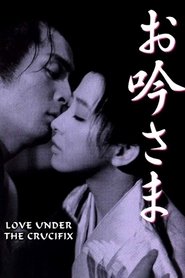 The basic story in Love under...
The basic story in Love under...Love Under the Crucifix 1962
The basic story in Love under the Crucifix is about Ogin, daughter of a tea master, who are both Christians in feudal Japan. Ogin falls in love with a feudal prince, also a Christian who is already married, and that creates problems. Further, when the Shogun bans Christianity, the situation worsens.
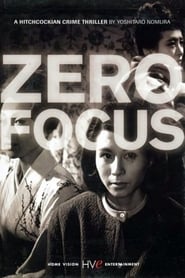 One week into newlywed Teiko Uharas...
One week into newlywed Teiko Uharas...Zero Focus 1961
One week into newlywed Teiko Uhara's marriage, her husband, Kenichi, leaves on a short business trip and never returns. Teiko travels across Japan to search for him, and along the way discovers some surprising facts about her husband's past. With only a pair of old photographs among his belongings to go off of, Teiko tries to figure out what has happened to him.
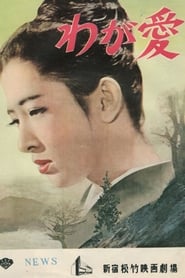 Story of a romance between a...
Story of a romance between a...When a Woman Loves 1959
Story of a romance between a middle-aged journalist and a young woman.
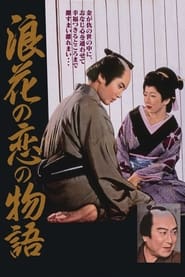 The adopted son of an Osaka...
The adopted son of an Osaka...Chikamatsu's Love in Osaka 1959
The adopted son of an Osaka courier falls in love with a prostitute and, discovering that she is about to be purchased by a client, steals money from his employer to redeem her. Hunted criminals, the two young lovers take flight to Yamato, but, as in Chikamatsu's other domestic tragedies of love and duty (known as sewamono), they must be pursued and their passion destroyed by death. Favourite Uchida themes, such as the indenturing of a prostitute , and his characteristic emphasis on performance and theatrical artifice re-emerge here; but the daring device of having Chikamatsu appear as a character - not unlike having Shakespeare interpolated into a film adaptation of one of his plays - is just one of many surprises this remarkable film holds. “Extraordinary” (Donald Richie).
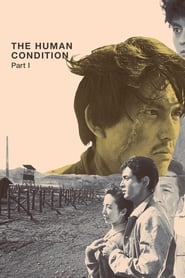 After handing in a report on...
After handing in a report on...The Human Condition I: No Greater Love 1959
After handing in a report on the treatment of Chinese colonial labor, Kaji is offered the post of labor chief at a large mining operation in Manchuria, which also grants him exemption from military service. He accepts, and moves to Manchuria with his newly-wed wife Michiko, but when he tries to put his ideas of more humane treatment into practice, he finds himself at odds with scheming officials, cruel foremen, and the military police.
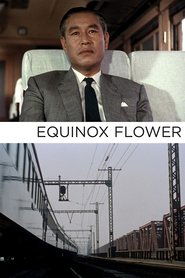 Wataru Hirayamas outwardly liberal views on...
Wataru Hirayamas outwardly liberal views on...Equinox Flower 1958
Wataru Hirayama's outwardly liberal views on marriage are severely tested when his daughter declares that she is in love with a musician and is adamant to live life her own way, instead of agreeing to an arranged marriage. Outwitted by his female relatives, Hirayama stubbornly refuses to admit defeat.
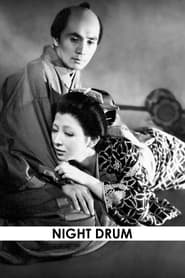 Following a yearlong attendance upon his...
Following a yearlong attendance upon his...Night Drum 1958
Following a yearlong attendance upon his shogun in Edo, samurai Hikokuro makes a long-awaited return to his home and doting wife, Dane. Initially greeted by the effusive welcome of his family, spiteful whispers also reach his ear about an adulterous affair carried on, in his long absence, between his wife and a famous drummer. With Hikokuro’s honor imperiled by rumor, his family insists on a formal investigation into the veracity of the gossip. Through the combined testimony of many witnesses, a tale unwinds around the visits of a traveling musician hired to tutor the family heir, the spurned attentions of the man who started the rumor, and the ultimate truth behind the accusations. The conclusion of events prove as much an indictment of bushidō as it is of the reluctant parties involved. Adapted from a 1706 play by Chikamatsu Monzaemon and based on a true case.
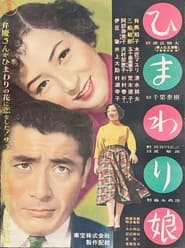 Young Setsuko Fujino begins a new...
Young Setsuko Fujino begins a new...Sunflower Girl 1953
Young Setsuko Fujino begins a new job at Tokyo Chemical Company. She likes her boss, Ippei Hitachi, and enjoys serving him tea, despite the fact that her fellow workers think the women employees should not have to act in such a servile manner. When the women go on strike over the issue, Setsuko finds herself caught in the middle. When the heir to the company, Ryosuke Tanabe, proposes marriage to Setsuko, she is honored, but realizes that her real affection is for Hitachi.
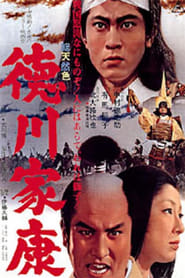 In turbulent 16thcentury Japan the leaders...
In turbulent 16thcentury Japan the leaders...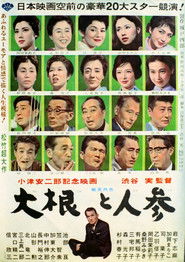 One day a company executive learns...
One day a company executive learns...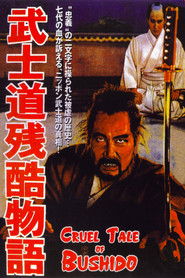 After a salarymans fiance attempts suicide...
After a salarymans fiance attempts suicide... 1960 Toei film
1960 Toei film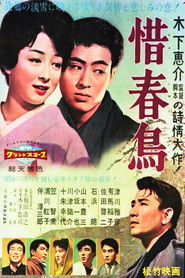 Five longtime friends get back together...
Five longtime friends get back together... After surviving the double suicide pact...
After surviving the double suicide pact...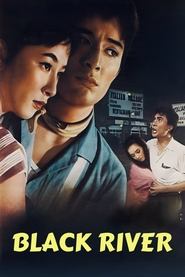 A university student moves into an...
A university student moves into an...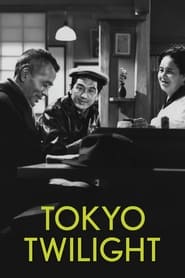 Two sisters find out the existence...
Two sisters find out the existence...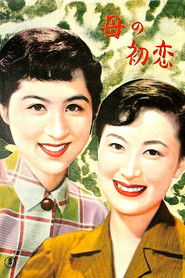 A melodrama based on the novel...
A melodrama based on the novel...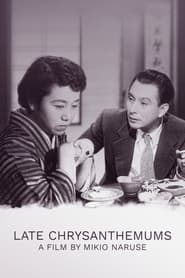 With delicate unobtrusive strokes Naruse evokes...
With delicate unobtrusive strokes Naruse evokes...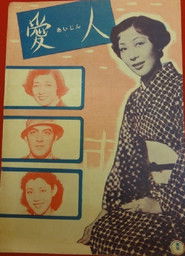 Comedy about a 50something movie director...
Comedy about a 50something movie director...